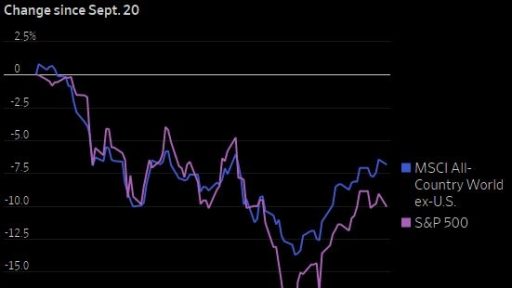- Home
- >
- Fundamental Analysis
- >
- What can go wrong with the FED’s waiting plan

What can go wrong with the FED's waiting plan

Here's the conundrum: If the markets really have made the right judgment that the Federal Reserve is going through a pause, then one of three things must be true, none of which is good for investors. If the market is wrong for the Federal, a tightening policy is set, and the January rally will be condemned as based on false expectations.
First Scenarios: The trend is eternal
The first scenario is the best and potentially the worst option. If the economy is slowing down to a steady trend, the Federal Reserve may keep its monetary policy paused infinitely. However, the incomparable effects of high interest rates in 2018, such as the turmoil in Turkey due to the strong dollar, the collapse of volatile structured instruments or the slowdown in the US mortgage market and the car market, should not be repeated again.
However, if the economy slows down to this level, investors are likely to confuse this delay with the end of the current economic cycle and panic.
The US economy grew 3.4% yoy in the third quarter of 2018. The Fed's policy provides a prerequisite for economic projection of growth between 1.7% and 2.2% without inflation being accelerated, with a base interest rate between 2.5% and 3.5% % for a full-capacity economy. The economy should be slowed down to avoid further interest rises, assuming there is still a correlation between inflation and economic activity. Falling below 2% real economic growth should be good for investors.
Second scenarios: The Fed has made a mistake in politics
Maintaining low interest rates may turn out to be a big mistake that can boost inflation. When investors are worried about the economy, good economic data also strengthens bonds and stocks. But when investors are worried about an overheating economy and inflation, stronger bonds lead to lower shares and vice versa.
Investors may also ignore the rise in commodity prices for the time being. Historically, raising inflation to 4% was supposed to hurt the stock market, and we are still below that level. Investors, however, will not be so gracious if the Fed has made a mistake. If the Fed is paused and we continue to get evidence of inflation, high bonds will be damaging the stock as it happened in February 2018.
When markets understand that the Fed has only paused interest rates by the second half of 2019, 10-year government bonds will jump very fast over 3%. The stock market will react in the opposite way.
Third Scenarios: Complete Fed Model Failure
The latter option is if the link between inflation and unemployment, or so-called Phillips curve has broken more than the Fed suggests. Unemployment in November reached its lowest level since 1969, while wage growth has accelerated without much effect on commodity prices. If this dependency no longer exists, economists will have to invent a new model to explain the current behavior of the economy.
It will be commendable if it turns out that high wages are tempting people to return to the real economy. This will demonstrate greater free economic capacity than the original one, so the economy will continue to grow without increasing inflation, which will help stocks, while bonds will remain stable.
However, a lack of strong theoretical rationale would make monetary policy less predictable, which would lead to a fall in stock prices and a rise in bond prices to offset uncertainty.
When we start to "compete" with economic growth and uncertainty, we get high volatility.
Source: The Wall Street Journal
 Trader Martin Nikolov
Trader Martin Nikolov Read more:
If you think, we can improve that section,
please comment. Your oppinion is imortant for us.













